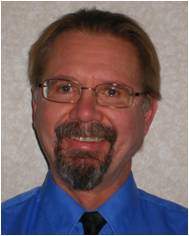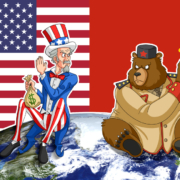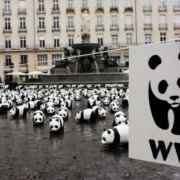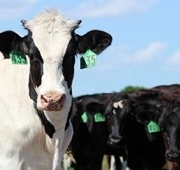Obama Steps onto Slippery Slope
by Brian Czech
 He’s finally done it. Barack Obama has taken the tantalizing trail to a notoriously slippery slope. In an op-ed for the Wall Street Journal last week, the President promised, “federal agencies (will) ensure that regulations protect our safety, health and environment while promoting economic growth.” In other words, we will have our cake (the environment) and eat it too (for economic growth), and federal agencies will be there to dish it all up.
He’s finally done it. Barack Obama has taken the tantalizing trail to a notoriously slippery slope. In an op-ed for the Wall Street Journal last week, the President promised, “federal agencies (will) ensure that regulations protect our safety, health and environment while promoting economic growth.” In other words, we will have our cake (the environment) and eat it too (for economic growth), and federal agencies will be there to dish it all up.
Obama was explaining the executive order he issued that day (January 18) and touted in the State of the Union address. The order was clearly designed with political convenience in mind, and who could begrudge him a bit of that? He is, after all, a politician. However, the order – and the rhetoric used to describe it – could tarnish his legacy as a true defender of the environment and the economy.
For much of his first year in the White House, the President steered clear of fallacious win-win rhetoric. His economic and environmental agendas had clear and separate goals. His economic focus was on rescuing the financial system and creating jobs. He seldom used the phrase “economic growth,” and there was even some evidence that he supported a “paradigm shift” away from unsustainable growth toward a truly sustainable steady state economy. Meanwhile, he promised to protect the environment, period, and the BP oil spill gave him a platform (pardon the pun) to put the environment first.
Some would argue that Obama was necessarily promoting economic growth when he bailed out the banks and called for job creation. But they wouldn’t necessarily be right. Bailing out banks and saving the insurance industry was necessary for stabilizing the financial system, which needed to happen with or without economic growth. It was needed especially to protect the modest lives of relatively innocent borrowers and customers (even though wealthier swindlers benefited too).
As for jobs, it is true that GDP growth is seen as a job creator through the lens of conventional economics. Technically, though, more jobs can be created while capital expenditures decline. In other words, employment can increase without growing GDP, and a president can call for more jobs without promoting economic growth. Such “labor intensification” has its limits, naturally enough, but it can solve short-term unemployment problems while more important issues are dealt with.
And what issues are more important than full employment? For starters, how about full employment for your kids, say five years from now, or for your grandkids in a couple of decades? How about the environment – air, water, soil, minerals, timber, fisheries, etc. – the foundation and building blocks of the economy? How about the other species on the planet?
Unfortunately, it’s too easy for critics to hone straight in on “other species” and rant, “Who cares about other species – we’re talking about the economy!” But we better care, because these other species are like canaries in the coalmine of the grandkids’ economy, and we’ve been shooting them down like targets at a county fair. Splat goes the spotted owl, poof goes the polar bear; 1,372 federally listed species on the ropes and, with very rare exceptions, down for the count. And what took the environmental building blocks from these unfortunate flora and fauna?
It’s not a mystery. The causes of endangerment in the U.S. are well-documented. They’re a veritable Who’s Who of the American economy. They reflect a human economy out of control, sweeping across the countryside, wiping out the economy of nature and using up the building blocks faster than new ones can be crafted by Mother Nature or imitated by Monsanto.
Yet for decades we’ve been subjected to the rhetoric that “there is no conflict between growing the economy and protecting the environment.” Though developed by environmentalists hoping to counter opposition to environmental protection, such rhetoric backfires incessantly. It results in policies (such as regulation-loosening executive orders) that allow us to pluck the grandkids’ goose while presuming to protect it.
Fortunately, the days of this rhetoric are numbered. Recent research has demonstrated conclusively the fundamental trade-off between economic growth and environmental protection, as so many prominent scientists have agreed. The trade-off is fundamental because it is based on physics and ecology.
What we need now is a president who will parlay this knowledge into public support for policy reform. The President can clarify once and for all that we can’t have our cake and eat it to. Can you almost hear him? “We need to balance our concerns about environmental protection with our concerns about full employment, and that doesn’t square with growth everlasting. What we need is a healthy, steady state economy balanced with a healthy environment, not an overgrown economy and a shrunken environment.”
How would a president and other policy makers help concoct a steady state economy, even if it was publicly supported? First, policies designed to “grow the economy” would be discontinued. Next, steady state policy tools (such as resource capping) would be employed. There is no shortage of policy options. But the horse must come before the cart. The steady state economy has to be a goal with widespread public support before a suitable policy framework can be constructed. Presidential leadership is needed to generate such support. Then, with widespread public support, a steady state economy would be engendered from the “demand side,” too, with temperance trumping conspicuous consumption. In other words, with widespread public support, less policy reform would be required for establishing a sustainable steady state.
It’s not too late for Obama to be the Truth Teller in Chief. He’s tested the slippery slope of win-win rhetoric – gotten his foot muddied a bit – but he hasn’t committed himself to a mudslide yet. The trade-off between economic growth and environmental protection is perhaps the most inconvenient of all truths to acknowledge, but it’s better than a full slide down the slippery slope of green growth rhetoric. That could be a legacy breaker.






Obama has always presided on the slippery slope. It is the magical thinking of his ardent supporters during his 2008 campaign and leading up to today that have believed he was actually spearheading a so-called paradigm shift.
Those of us who know the typical tactics used to get elected and tireless efforts to prolong the BAU climate have never been fooled by Obama.
My thoughts follow a similar line concerning Obama´s lack of credibility. His original appointment of Van Jones, the green jobs czar, tapped into existing channels of hope, I might grant, and some of his appointees might be generally much more beneficial than from the other major party, but that´s about it.
Ralph Nader wrote about credit unions after the crisis here, and in Europe, the big co-op banks organized with each other to support their responses. One piece of legislation that has been around since 1994 can inspire us I suggest to you, the Riegle Act´s Community Development Fund initiative http://www.cdfifund.gov/who_we_are/about_us.asp . Moreover, the final health care bill did include some encouragements for health care co-ops http://www.gao.gov/press/co_op2010jun23.html
Changing the concept of economic activity from growth to steady state needs to involve job sufficiency and maintenance of some kinds of sufficient levels of enterprise activity, it seems to me we need to be clear. In the case of green energy, the best “zero growth” policy I have researched considerably is the question of decentralized energy. A feed-in tariff has been the successful policy to incentivize that approach, but a bill lies dormant in Congress.
I can’t believe you’re defending the TARP!
The beloved “economy” is killing the earth — let it die! Injecting $700,000,000,000 into the economy — especially in the location in which it was injected — did little more than $700,000,000,000 worth of damage to the environment, and to those future generations you seem to care so deeply about.
This seems to be where we differ: you call for a steady-state economy. I think that’s a good goal, eventually. But we REALLY need a CONTRACTING economy for an extended period of time, just to come down off this fossil-fuel high that we’re currently at the peak of!
You say putting $700,000,000,000 into the economy was “necessary for stabilizing the financial system.” I say NOT doing so would have been a good start on the path we’ve got to eventually face anyway.
There are two possibilities. (1) Either President Obama understands the problem but does not have the spine to do anything because he would be an exception among the entire administration and risk high unpopularity (people may think he has lost his mind) or (2) He does not understand the fundamentals. Either way, outcome is same, status quo. He is surrounded by economists he has appointed that come from the corporate world and that know nothing but economic growth as a way to create jobs and so called prosperity. So he saying otherwise will make him look stupid completely ignoring their “advise” (why then did he appoint them?). A difficult deadlocked situation that will break perhaps with unrest similar to that happening elsewhere, when unemployment reaches unsustainable levels (it already is kind of). The growth will need to be very high to create meaningful employment because machines are increasingly doing the work (including administrative work) for which humans were once needed, in short, using growth to create employment is diminishing returns, to use the popular terminology of economists and will further widen the rich-poor gap, in essence it is going to stoke the fire (positive feedback). We are seeing positive feedback loops everywhere now (climate crisis, resource crisis, economic crisis, social injustice crisis, all feeding and stoking each other, the “growth” is really the growth of these fires). The administration is unknowingly setting itself up for unrest, it is tragic.
“The steady state economy has to be a goal with widespread public support before a suitable policy framework can be constructed. Presidential leadership is needed to generate such support.” I strongly agree with the focus on public support as an important priority. However, while I also agree that Presidential leadership can have a strong impact, I think that some approaches can succeed even with limited Presidential involvement.
While non-profit group activists from Greenpeace to Friends of the Earth and more play important roles in protesting, the rise in environmental entrepreneurs has been offering an impressive addition to the social change team. Some even have gotten wet behind the ears at those very NGOs.
The need to reduce machine use to expand meaningful job availability is a great point, too. Renewable energy in decentralized energy strategies alone, for example, will not provide the substance for a society. Mass production uses up resources in large quantities, and displaces people in all kinds of areas.
Senator Kent Conrad lead the policy of health care co-ops in that debate, some part of which was included in the final bill. Co-ops create more jobs in an alternative business model that is not about maximizing profits, but more aligned with quality and responsibility. Discussions are already occurring to include environmental concerns in the official principles of the model. While Obama´s rhetoric may be win-win, the real win-win is to be found elsewhere. If he can´t get there in his current position, it is time for the people to lead so that the leaders can follow.
Nobody supports steady-state, so why do we expect Obama to push that? It’s our national/international blind-spot.
“Bailing out banks and saving the insurance industry was necessary for stabilizing the financial system, which needed to happen with or without economic growth. It was needed especially to protect the modest lives of relatively innocent borrowers and customers (even though wealthier swindlers benefited too).”
WHAT?!
No biters, eh? Well, I gotta tell ya, steady staters, I am wondering if the economy you propose is simply more BAU, just holding ‘er steady. If so, that’s not much.